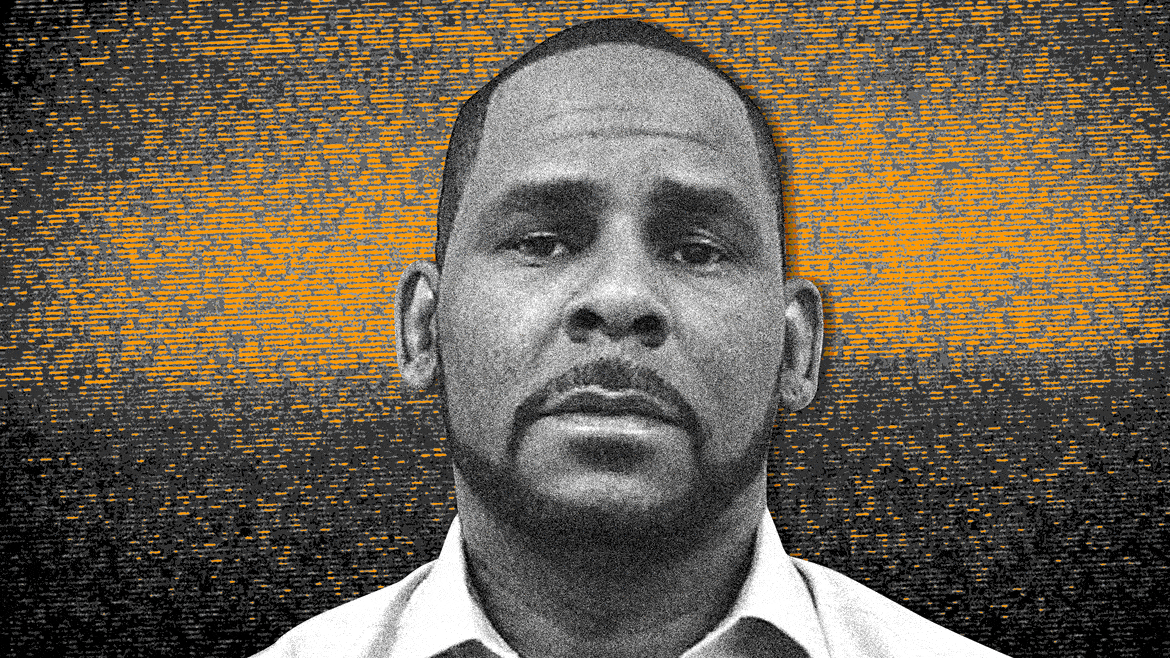‘Surviving R. Kelly Part II:’ R. Kelly Victims Detail Horrifying ‘Suicide Pact,’ Starvation, and Threats

Twenty-six years ago, R. Kelly married his protégée, Aaliyah. He was 27, and she was just 15. Eighteen years ago, a video was widely circulated allegedly of the R&B superstar raping and peeing on an underage girl. Despite the vast evidence, which included decades of additional allegations of grooming and sexual abuse against Kelly exposed by journalist Jim DeRogatis, it wasn’t until the release of last year’s dream hampton docuseries Surviving R. Kelly that the public finally turned on him. The Twitterati circulated the hashtag #MuteRKelly; RCA dropped him; and in July, federal prosecutors indicted Kelly on 18 charges, chief among them kidnapping, child sexual exploitation, and child pornography.
Exactly one year—and one truly insane dust-up with Gayle King—later, and Lifetime has returned with a follow-up special about the depths of Kelly’s alleged crimes, how he is said to have intimidated his victims, and the two young women currently caught in his spell. The new five-hour program Surviving R. Kelly Part II: The Reckoning is set to air over three consecutive nights, starting Jan. 2.
‘Surviving R. Kelly’ and Why We Can’t Separate the Art From the Artist
The Hollywood Celebs Complicit in R. Kelly’s Reign of Terror
One of the most eye-opening revelations in Part II is Kelly’s alleged intimidation of his accusers. For example, on the night of Dec. 4, 2019, shortly after Surviving R. Kelly’s New York premiere was shut down due to a phoned-in threat, Kelly accuser Faith Rodgers says she was approached by a woman claiming to be an employee of Kelly’s. Rodgers, who’d already been on the receiving end of threats from Kelly’s camp that they’d leak nude images of her, sat down with the lady at Applebee’s and told her to get lost. Moments later, she had a violent seizure and ended up in the hospital.
We hear from Tiffany Hawkins, who says she procured girls between the ages of 14 and 16 for Kelly to have sex with—before he had sex with her when she was 15; Gem Pratts, a childhood friend and ex-security guard of Kelly’s who calls out Kelly’s management and camp for being “enablers”; the families of Joycelyn Savage and Azriel Clary, who are still holed up in Kelly’s home; and Dominique Gardner, who alleges Kelly “yanked out” her hair for not obeying an order to approach him at a party, and that he isolated and starved her. “The longest I ever went by myself [without food] was a week and a half. It felt… lonely, sad. It was like I didn’t want to live anymore. It was just…dark,” she confesses.
Perhaps the most disturbing testimonial comes from Jerhonda Pace, who was allegedly abused by Kelly for a number of years. “He would just look for the one who’s kind of off to the side, not mingling too much…and he would go grab that person. And it was usually the youngest one in the room,” she said. It was a different side of him I’d seen. I didn’t expect him to be this monster. I didn’t expect him to be so evil.”
According to Pace, she had a “suicide pact” with Kelly. “With Rob, I was part of a suicide pact with him. And if anything was to happen to him, if he was to go to jail or someone was to harm him, I was supposed to kill myself,” she said, tears streaming down her face. “When the suicide pact came about, Rob and I was in the mirror room, and he told me if I was everything to him like I say he is, then there would be no life worth living. He said, if something happens to me, I want you to take these pills.”
“When I was with him I was really ready to take my own life, because Rob was everything to me. Rob was my life,” she added.
While the show features the indicted, cable news-obsessed attorney Michael Avenatti — who represented the families of R. Kelly victims — Part II also calls out comics like Dave Chappelle and Aziz Ansari for turning Kelly’s disgusting behavior into comedy fodder, and grapples with the question of whether we should separate the art from the artist and indeed #MuteRKelly.
“The thing that’s different about R. Kelly is he’s actively doing this stuff, and so the idea of…people supporting him and playing his music gives him revenue, and the more revenue he has the more resources he has,” argues #MeToo founder Tarana Burke. “He puts those resources into doing the things he’s doing to these girls.”
In other words: we’re all complicit.
Got a tip? Send it to The Daily Beast here
Get our top stories in your inbox every day. Sign up now!
Daily Beast Membership: Beast Inside goes deeper on the stories that matter to you. Learn more.

